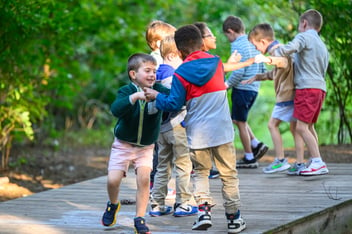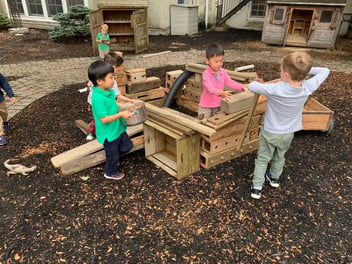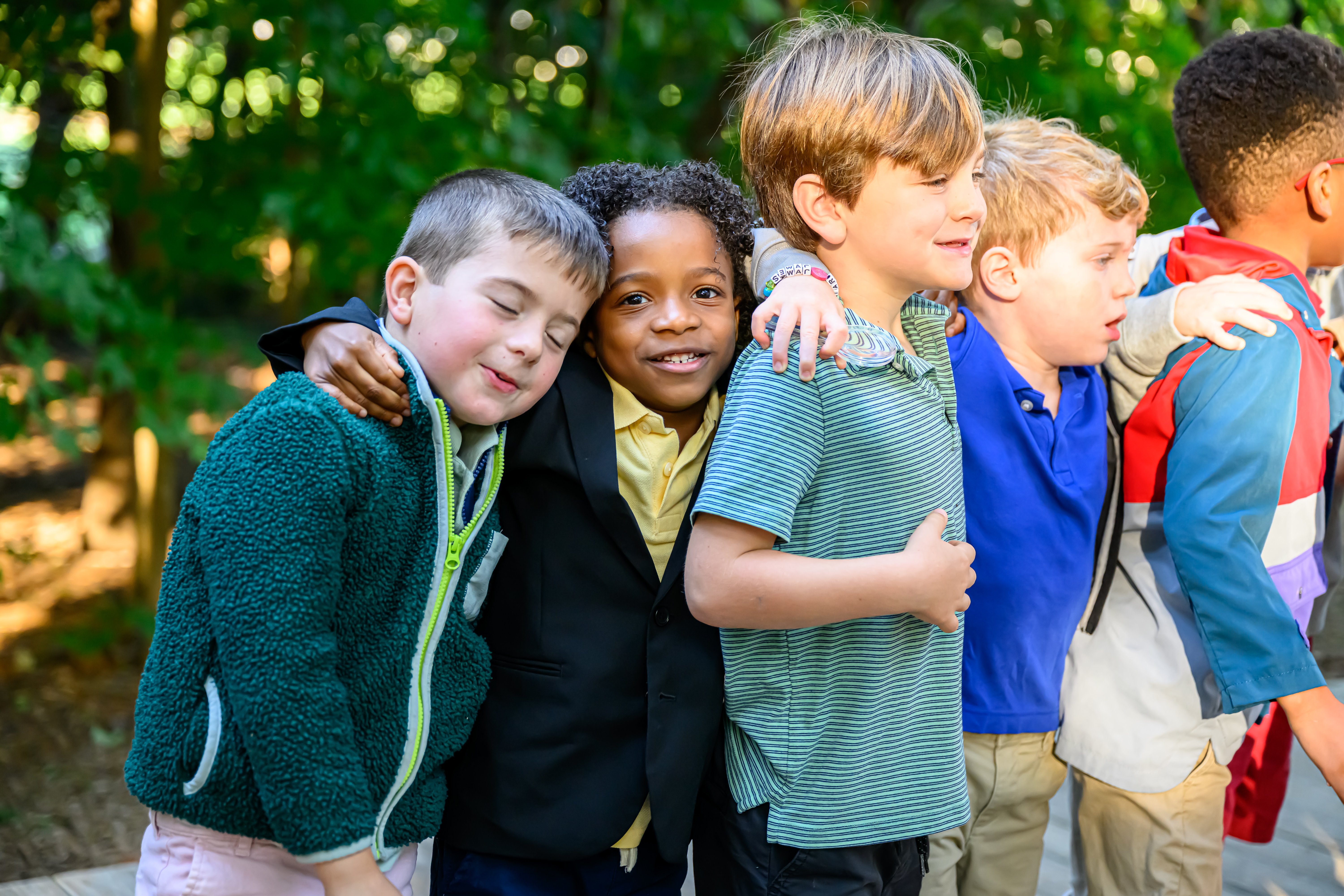Whether your child previously participated in a childcare center or Pre-K will be his first formal educational setting, it’s common to prioritize the curriculum and specific areas of study as you evaluate the best fit for your little learner. After all, everyone is talking about “kindergarten readiness,” and you want to be sure that your child is ahead of the curve.
In recent years, kindergarten has become increasingly rigorous thanks, in part, to the emphasis on standardized testing, and parents have started to consider quality Pre-K programs as a way to ensure their child meets common kindergarten requirements and expectations. But experts say that social-emotional learning (SEL) is just as important as academics when it comes to a quality Pre-K program, so it may behoove you to ask teachers how they incorporate it into their classrooms.
What is Social-Emotional Learning?
Social-emotional learning is defined by The Pennsylvania State University and Robert Wood Johnson Foundation as “the process through which children and adults acquire and effectively apply the knowledge, attitudes, and skills necessary to understand and manage emotions, set and achieve positive goals, feel and show empathy for others, establish and maintain positive relationships, and make responsible decisions.” In other words, it’s how your child thinks, feels, and acts.

And so, one of the most critical aspects of a good Pre-K program is a focus on things like how to control yourself and behave in the class, how to wait your turn, how to share, how to deal with frustration, and how to solve conflicts. You may or may not be surprised to learn that these skills are not innate, and they are just starting to emerge in 3-, 4-, and 5-year-olds.
While it seems simple and we may not remember the specific ways through which we learned to navigate our own social-emotional learning, it is a critical aspect of early childhood education. In many cases it must be taught and reinforced. In fact, SEL is so important that it is outlined in Pre-K program standards in all 50 states.
Earlier is Not Better When it Comes to Academic Studies
According to Lilian G. Katz, PhD, Pre-K programs are most effective when they “focus on social, emotional and intellectual goals rather than narrow academic goals.” In her report “Lively Minds: Distinctions Between Academic Versus Intellectual Goals For Young Children,” she states that the assumption that “earlier is better” with regard to an emphasis on beginning a rigorous academic curriculum—especially related to reading—is not supported by neurological research. She posits that schools must provide “early experiences that provoke self-regulation, initiative and…sustained synchronous interaction in which the child is interactive with others in some continuous process, rather than a mere passive recipient of isolated bits of information for stimulation.”

Academics Should Be Present—But Not the Primary Focus
According to an NPR article, social-emotional learning can and should complement a strong academic curriculum rooted in research. “Instruction built on social and emotional skills, rich play, toys, games, art, music and movement complements explicit instruction focused on things like learning to count and matching letters to sounds and words. Both benefit kids’ readiness for school.”
Social-Emotional Learning at The Fessenden School
At Fessenden, social-emotional learning is at the heart of what we teach. Passionate and experienced teachers focus on the individual child and help him develop the social, emotional, and academic tools he needs to navigate the world with enthusiasm and curiosity—and to be prepared for kindergarten and everything else that lies ahead. We place an emphasis on recognizing random acts of kindness, we teach boys to lend a hand to a friend in need, and we guide them to help mediate friends’ conflicts when they arise. In short, we’re careful to put the building blocks in place for a strong internal compass, all the while having fun and learning!
Read On

Why Consider an All-Boys Pre-K Program?

Life and Leadership – A Popular Fessenden Course for Middle School Social Development

